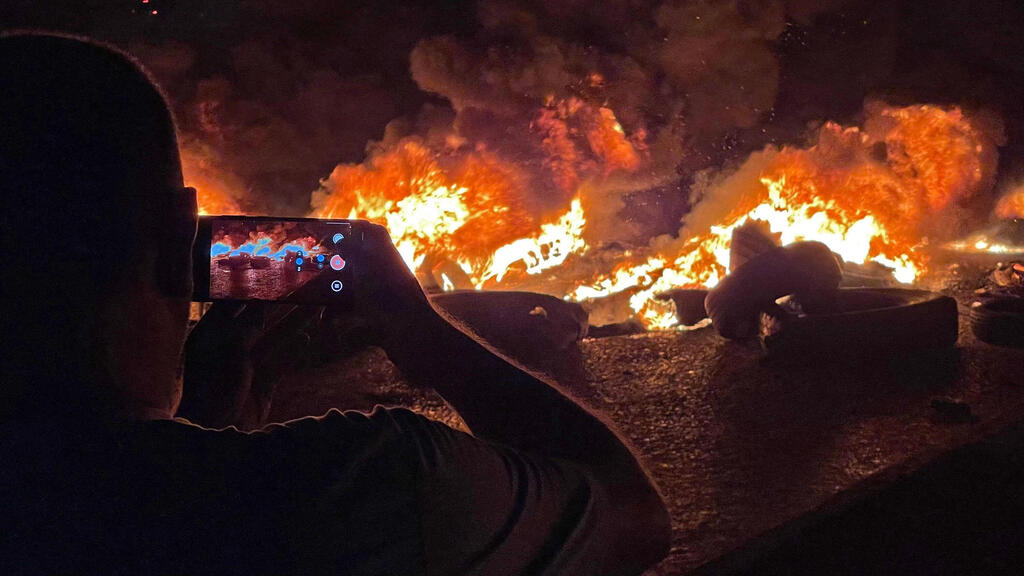.
Media and politicians were justified in paying attention to the fallout on Monday over the publicized meeting of Foreign Minister Eli Cohen with his Libyan counterpart Najla Mangoush in Rome. After news of the "covert" meeting broke, riots began in Libya and Mangoush was forced to flee to Turkey after being fired. The desire to claim credit for the meeting, while throwing caution to the wind, was in the interest of a quick political win at home, and in complete disregard of diplomatic considerations.
Read more:
It ultimately caused untold damage to any future contacts with the other nations in the Middle East and certainly raised concerns about them becoming public.
But it also reveals a deeper understanding of how current and future contact with the Arab world would be accepted by their citizens. Before Mangoush was sacked, rioters took to the streets to express their outrage over talks with Israeli officials.
Israel has learned what to expect in the region after the signing of the Abraham Accords, and what the limits of its acceptance by regional leaders, may be. Israelis attending the Soccer World Cup games in Qatar suffered abuse from Arab audiences, and any attempts to forge warm relations with Jordanians or Egyptians in those countries, both having signed peace deals with Israel in past decades, were given the cold shoulder.
The riots demonstrate the gap between the apparent welcome extended to Israeli officials based on strategic considerations, and the emotions held by most Arabs, when it comes to Israel. Public opinion polls show Israel is still considered an enemy in most Suni Muslim countries, even those as far away as Tunisia and Algiers.
This is a lesson that must be learned by Israeli leaders who opt to promote the optimistic but false notion that mutual economic and strategic goals can bring about a breakthrough in ties with the Arab world, including with the man-on-the-street while circumventing the Israeli-Palestinian conflict, West Bank settlements and police clashes with worshipers on Temple Mount, all together.
This is a critical conversation to have, while efforts to forge Israeli-Saudi relations are ongoing. Many observers are focused on the internal political obstacles that may be in the way of those efforts, on the U.S. administration and the Palestinian leadership. Few ask about how the average Saudi citizen feels about Israel – granted there is little known regarding the subject. A best-case scenario would be a similar response to that exhibited in the UAE. A worse option which is not unlikely, would be a popular uprising against the Saudi regime.
The Libyan debacle should indicate to the decision-makers in Jerusalem that they should review the foundations on which Israel's Middle East strategy relies. Along with an abundance of caution regarding any public contact with regional leaders, and a deep understanding of public perceptions among their citizenry, Israel should examine the effects of the conflict with the Palestinians, on the Arab world.
 Dr. Michael Milstein Photo: Tomer Shalom
Dr. Michael Milstein Photo: Tomer ShalomThe challenges some countries have faced since the 2011 Arab Spring pushed the Palestinian struggle to the sidelines, but it still holds sway over public opinion.
Talks with the Palestinians will not necessarily change the disdain Arabs feel towards Israel, but they may reduce its potency and improve ties with most Arab governments. On the other hand, continued tension between Jerusalem and Ramallah, especially if one-sided policies to change the reality on the ground continue, hostility in the Arab world will grow, ultimately foiling attempts for diplomatic agreements.
Dr. Michael Milstein is Head of the Palestinian Studies Forum at the Moshe Dayan Center for Middle Eastern and African Studies
DIPLOMATIC CONTROVERSY ERUPTS AFTER ISRAEL-LIBYA MEETING REVEALED
(iltv)





